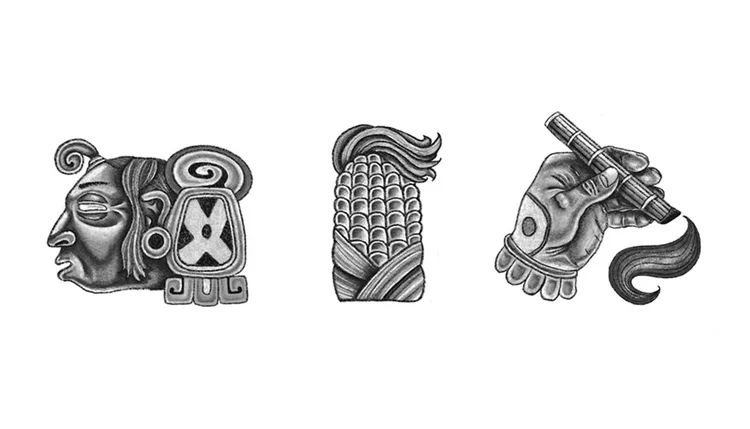Trono de Piedras Negras - 36” W x 24” H, Pencil on Painted Wood
El Trono de Piedras Negras: A Maya Throne of Power
The Trono de Piedras Negras (Throne of Piedras Negras) is an intricately carved Maya throne located at the ancient city of Piedras Negras, in present-day Guatemala, near the Usumacinta River. This throne was a significant political and ritualistic structure, used by Maya rulers for ceremonies, public audiences, and diplomatic events.
Symbolism and Significance
Throne of Divine Kingship – A symbol of royal authority, where Maya rulers reinforced their divine legitimacy during official events.
Jaguar Mountain Symbolism – The throne itself is believed to represent a Witz, or sacred mountain, a key element in Maya cosmology. The mountain was associated with the jaguar, a powerful symbol of kingship, the underworld, and shamanic transformation. The jaguar was seen as a guardian of sacred knowledge and a link between the earthly realm and the supernatural world. By sitting on this throne, the ruler was metaphorically positioning himself as a divine intermediary, embodying the strength and wisdom of the jaguar.
Carvings and Hieroglyphs – Decorated with inscriptions of rulers, myths, and political alliances, preserving the city’s history.
Political and Ritual Importance – A central fixture in the acropolis, where kings held ceremonies, honored deities, and asserted dominance over rivals.
Piedras Negras: A City of Kings
Piedras Negras is the modern name for an ancient, ruined city of the pre-Columbian Maya civilization located on the north bank of the Usumacinta River in the Petén department of northwestern Guatemala. Piedras Negras was a major Maya city during the Classic Period (250–900 CE), often in The site is famous for its detailed stelae, throne rooms, and hieroglyphic inscriptions, which provide insights into the history and governance of the Maya civilization.
Maya Culture throne (Trono 1)
Late Classic period (c. 800 CE)
Piedras Negras, Petén, Guatemala
Guatemala City: Museo Nacional de Arqueología y Etnología (Museum of Archaeology and Ethnology)




